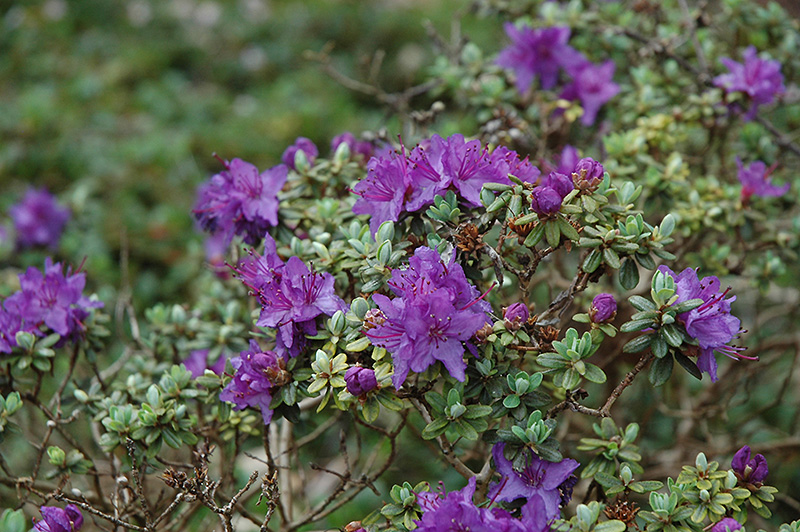Find Plants
Dwarf Purple Rhododendron
Rhododendron impeditum
Height: 24 inches
Spread: 24 inches
Sunlight:
![]()
![]()
Hardiness Zone: 4
Description:
A very compact, mounded dwarf variety with stunning purple-blue flowers in mid-spring; perfect for rock gardens or small borders; absolutely must have well-drained, highly acidic and organic soil, use plenty of peat moss when planting
Ornamental Features
Dwarf Purple Rhododendron is covered in stunning clusters of purple trumpet-shaped flowers with blue overtones at the ends of the branches in mid spring. It has grayish green evergreen foliage. The tiny oval leaves remain grayish green throughout the winter.
Landscape Attributes
Dwarf Purple Rhododendron is an open multi-stemmed evergreen shrub with a mounded form. Its average texture blends into the landscape, but can be balanced by one or two finer or coarser trees or shrubs for an effective composition.
This is a relatively low maintenance shrub, and should only be pruned after flowering to avoid removing any of the current season's flowers. It has no significant negative characteristics.
Dwarf Purple Rhododendron is recommended for the following landscape applications;
- Accent
- Mass Planting
- Rock/Alpine Gardens
- General Garden Use
Planting & Growing
Dwarf Purple Rhododendron will grow to be about 24 inches tall at maturity, with a spread of 24 inches. It has a low canopy. It grows at a slow rate, and under ideal conditions can be expected to live for 40 years or more.
This shrub does best in full sun to partial shade. You may want to keep it away from hot, dry locations that receive direct afternoon sun or which get reflected sunlight, such as against the south side of a white wall. It requires an evenly moist well-drained soil for optimal growth, but will die in standing water. It is very fussy about its soil conditions and must have rich, acidic soils to ensure success, and is subject to chlorosis (yellowing) of the foliage in alkaline soils. It is somewhat tolerant of urban pollution, and will benefit from being planted in a relatively sheltered location. Consider applying a thick mulch around the root zone in winter to protect it in exposed locations or colder microclimates. This species is not originally from North America.
Disclaimer - This Plant Finder tool is an online resource representing many of the varieties that we carry over the course of the season, and is intended for informational purposes only. Inventory varies seasonally, so we cannot guarantee that every plant will be in stock at all times - please contact the store directly for availability. It does not include our entire inventory of plants, so be sure to visit our store to see varieties that may not be represented on this list.

